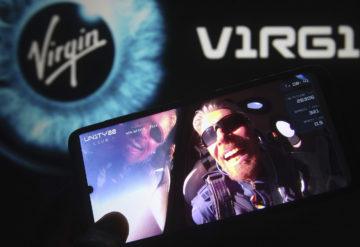Alina Utrata in the Boston Review:

Having made enormous fortunes on Earth, billionaires are now racing each other to space. Former Amazon CEO Jeff Bezos, the richest person on the planet, recently announced that he will be one of four “space tourists” on his private space company Blue Origin’s inaugural human spaceflight scheduled for July 20, 2021, the anniversary of the Apollo 11 moon landing. The news caused Virgin Galactic owner Richard Branson to speed up his own planned space trip and launch himself into space this weekend, nine days before Bezos.
Fellow tech billionaire, and third richest person on Earth, Elon Musk is often the most vocal about his space company, SpaceX, and his plans to make humans an “interplanetary species.” Bezos, however, is just as obsessed with outer space as the Tesla founder is. The billionaires concur that it is humanity’s destiny to settle the stars. And, without much real public debate, private space corporations appear to have settled the matter: space will be humanity’s next frontier.
The notion that private corporations ought to achieve something that states have been able to do since the 1960s—fly to space—is a peculiarly U.S. one. It combines domestic libertarianism and its idolatry of private individuals’ entrepreneurship with the more global ethos of neoliberalism and government outsourcing. However, despite these motivating philosophies, private companies have launched their schemes for space colonization using massive amounts of public money through government contracts.
More here.
